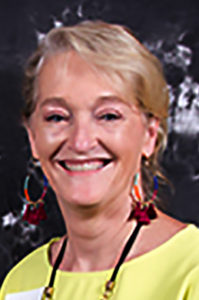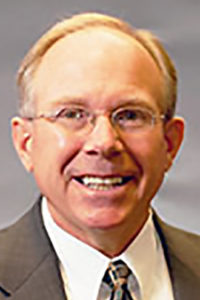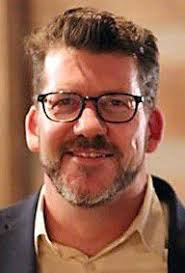Community journalism ‘never more important’ than now
By Megan Wehring
Texas State University
The Pew Research Center continues to report on declining newspaper circulation (“its lowest level since 1940”), revenue (“declined dramatically between 2008 and 2018”) and employment (“dropped by nearly half between 2008 and 2018”).
 But Frank Blethen, in a Washington Post column, says, “Local journalism has never been more important or sought after.”
But Frank Blethen, in a Washington Post column, says, “Local journalism has never been more important or sought after.”
And longtime journalist Joyce Dehli calls local journalism “an essential force in our democracy.”
Emphasizing the continuing role of local media in American society, a panel of local journalists visited with college students as part of Dow Jones News Fund and Texas Press Association intern training May 27.
Panelists discussed how local journalists need to earn and maintain the public’s trust. They must tell all the stories of the community.

“You also have to show up at events. As people get to see you more and they begin to realize ‘Oh, you’re just a normal person. You’re not this I’m-going-to-get-you kind of journalist,’” Cyndy Slovak-Barton, publisher at Barton Publications, told the group of 10 interns during a virtual training. Barton Publications produces a number of publications in Hays County, Texas, including the Hays Free Press.
“We bring them the news from their own backyards, which also promotes a feeling of connectedness and community for local residents,” Kara McIntyre, a 2018 graduate of Midwestern State University in Wichita Falls, Texas, and now editor of the Alpharetta/Milton edition of Community Impact Newspaper, Community Impact’s first market in Georgia, said. “It’s hard to care about a community if you have no idea what’s happening in it.”

To provide resources for nearly 500 newspapers, the Texas Press Association, founded in 1880, values giving the public information while maintaining high standards of journalism, said Executive Director Mike Hodges, adding that TPA’s main mission is to promote and preserve the future of newspapers in Texas.
The panel also promoted community newspapers as a place for young journalists to start their careers.

Small newspapers allow reporters and interns to gain more hands-on experience because there’s a limited staff. Ken Cooke, publisher at the Fredericksburg Standard-Radio Post, said journalists have more opportunities at small publications.
“One thing that I like about community papers versus working at a large metro is you get to do a little bit of everything,” Cooke said. “You’re going to be taking photos, helping with an email newsletter—these days you’ll be shooting video and then writing also.”
Cooke also said small newspapers cover a wide range of topics for the community.
“We cover a lot of high school sports,” Cooke said. “We don’t have university sports here so the high school is the big deal. Everybody has a story to tell, and our reporters do a good job of other features whether they are lifestyle or overcoming an obstacle.”
Slovak-Barton said almost every person a reporter meets has a story that needs to be shared.
“My father-in-law would flip open a phone book [back in the day they were available] and say, ‘Call that person and find what their life story is,'” Slovak-Barton said. “There is an interesting story on almost any person. You can find a story on anything.”
Sam Sutton, a reporter at the Standard-Radio Post in Fredericksburg, Texas, said local journalism is still the best way to find the most accurate and up-to-date information, especially in towns such as Fredericksburg, a town of about 11,500 north of San Antonio.
“We want to give our readers the most relevant and accurate information, while also telling the stories of every part of our community,” Sutton said, “whether it’s a local business, a local hero, or, and this is the hardest to tell, but a sad story.”
McIntyre agreed with Sutton.
“We are literally documenting history, and, while national outlets are doing the same, they can’t possibly cover each community the way a local journalist can,” she said. “We can take something as broad as these topics, focus it down and tell our readers why it matters and how it’s going to affect them. National outlets can’t do that the way we can, simply because they aren’t here every day.”
Some local newspapers had to adjust their content after losing advertising revenue due to the COVID-19 virus. Slovak-Barton’s staff at the Hays Free Press notified subscribers that, for a period of time, they would receive a virtual copy that looked like the print edition.
While the coronavirus is at the forefront of headlines, local journalism has started to keep up with statistics in the community. Slovak-Barton said the Hays Free Press moved to online daily updates for their readers.
“We actually have a daily count on our website,” she said. “It’s a daily chart that goes out, listing how many are hospitalized, how many new ones are testing positive.”
“All we want to do is keep people informed,” Sutton said, “even if it’s news some people may not want to read.”
As the TPA panel, coordinated and moderated by Griff Singer, a retired senior lecturer from the University of Texas at Austin, wrapped up, the speakers gave some lasting advice for the young journalists. Cooke reminded the interns that they won’t know everything on their first day.
“Don’t be afraid to ask,” Cooke said. “Don’t be afraid to run somebody’s quote by them and say, ‘Hey I just wanted to make sure this was correct.’ You’re not going to automatically understand everything.”
Sutton also had some advice for young journalists.
“Your work is important,” he said. “Use that as motivation.”
WATCH the entire panel discussion.
MORE INFORMATION
- “Want to reduce political polarization? Save your local newspaper” by Joshua P. Darr, Johanna Dunaway and Matthew P. Hitt, Feb. 11, 2019, NiemanLab
- “In this moment of multiple crises, we need strong local journalism” by Frank Blethen, May 18, 2020, Washington Post
- “Rebuilding local journalism as an essential democratic force” by Joyce Dehli, Nov. 15, 2016, Nieman
- “Local journalism is in crisis. That’s a big problem for education” by Evie Blad, Jan. 7, 2020, Education Week

Megan Wehring recently graduated from Texas State University with a bachelor of science degree in journalism. She is interning at the Hays Free Press in Kyle, Texas, where she is covering town meetings and feature stories. When she’s not writing, Wehring enjoys mini-photography sessions and exploring coffee shops.
